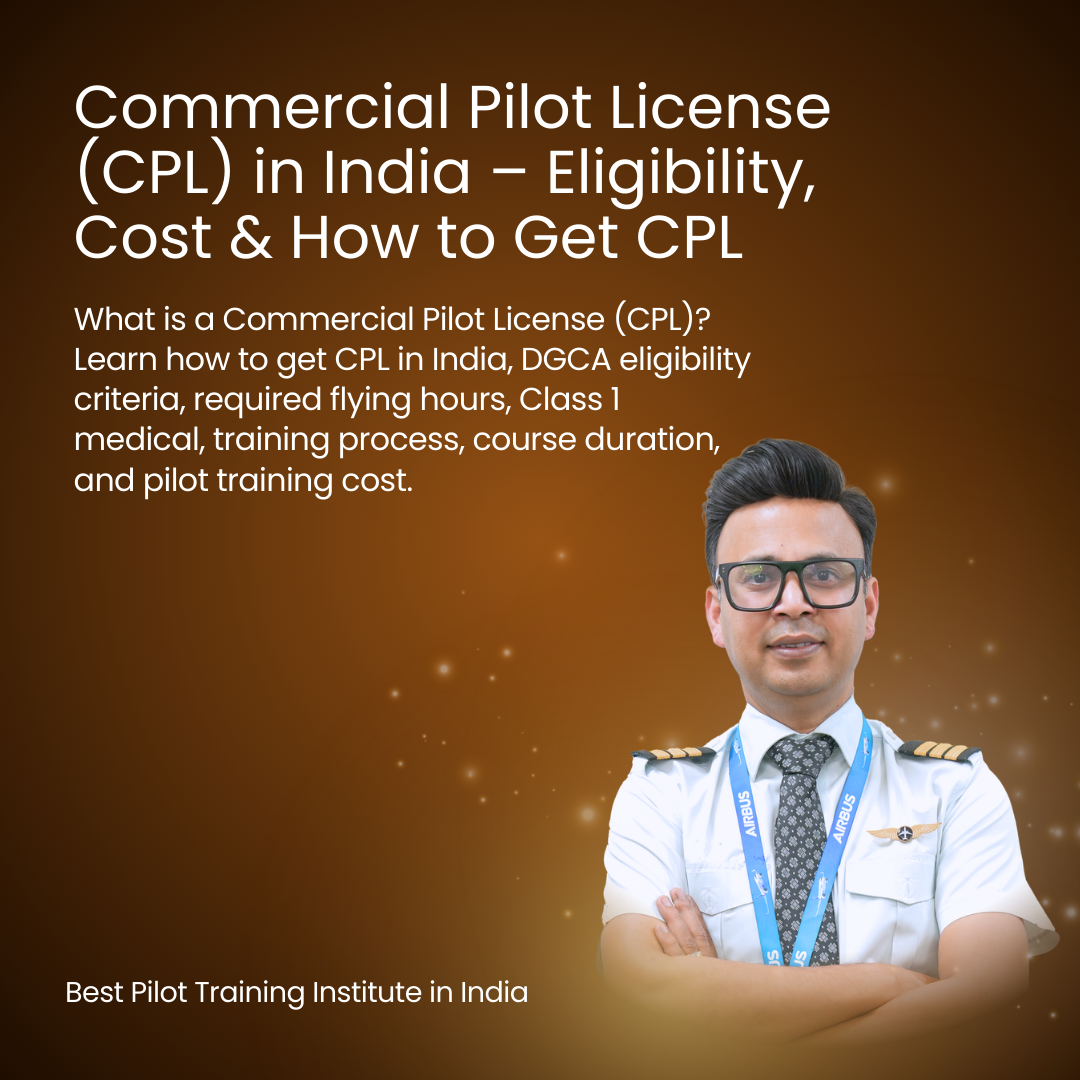A Commercial Pilot License (CPL) is the professional aviation license that legally allows you to fly aircraft for compensation. In India, it is issued by the Directorate General of Civil Aviation (DGCA), the regulatory authority governing pilot licensing, flight training standards, and airline operations.
What Exactly Is a Commercial Pilot License?
A CPL is not a certificate of passion or talent. It is proof that you meet regulatory standards of knowledge, flight skill, and medical fitness required to operate aircraft professionally.
| License | Purpose | Career Stage |
|---|---|---|
| PPL | Recreational flying | Entry-level |
| CPL | Professional flying | Airline pathway begins |
| ATPL | Airline Captain eligibility | Command role |
What Can You Do With a CPL?
- • Work as First Officer in airlines (after Type Rating)
- • Join charter & corporate aviation
- • Enter cargo operations
- • Build flying hours toward ATPL
- • Become Flight Instructor (with additional rating)
Important: CPL alone does not make you airline-ready. Airlines require Type Rating, simulator clearance, interview success, and psychological screening.
CPL Eligibility Criteria in India (DGCA Norms)
| Requirement | Details |
|---|---|
| Minimum Age | 18 Years |
| Education | 10+2 with Physics & Mathematics |
| Medical | DGCA Class 1 Medical |
| English Proficiency | ICAO Level 4 or above |
| Flying Hours | Minimum 200 Hours |
Official Authority: Directorate General of Civil Aviation (DGCA)
DGCA CPL Ground Subjects (Theory Exams)
| Subject | Focus Area | Exam Nature |
|---|---|---|
| Air Navigation | Flight planning, wind triangle, charts | Numerical intensive |
| Meteorology | Atmospheric systems, METAR, TAF | Concept-based |
| Air Regulations | CAR, ICAO Annexes, Airspace rules | Regulatory MCQs |
| Technical General | Aircraft systems & aerodynamics | Conceptual |
| RTR (A) | Radio Telephony Communication | Written + Oral |
Step-by-Step Process to Get CPL in India
1. Complete 10+2 (Physics & Maths)
2. Apply for DGCA Computer Number
3. Enroll in DGCA Ground Training
4. Clear All Theory Exams
5. Obtain DGCA Class 1 Medical
6. Complete 200 Flying Hours
7. Pass Skill Test (Check Ride)
8. Apply for CPL Issuance
Estimated CPL Cost in India (2026)
| Component | Estimated Cost |
|---|---|
| Ground School | ₹1.5 – ₹3 Lakhs |
| Flying Training (India) | ₹40 – ₹50 Lakhs |
| Type Rating | ₹20 – ₹30 Lakhs |
Total Investment Range: ₹45 – ₹80 Lakhs depending on training pathway.
Career Progression & Salary Range
| Position | Monthly Salary (Approx) |
|---|---|
| Trainee First Officer | ₹1.5 – ₹2.5 Lakhs |
| First Officer | ₹4 – ₹6 Lakhs |
| Captain | ₹8 – ₹12+ Lakhs |
Related Preparation Resources
Final Reality Check
A CPL is not glamour. It is procedure, discipline, examination, flight precision, and financial planning. The cockpit rewards clarity and structured thinking — not daydreams.

